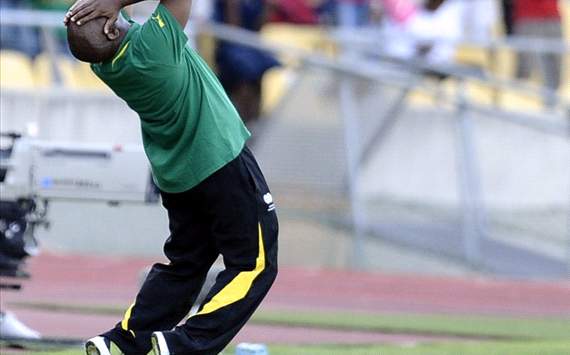
Guest post by Mohlomi Maubane
The Germans regularly find a way to excel in tournaments and are among the favourites to win the Euros in Poland/Ukraine. The South African football fraternity would do well to take a page out of the playbook that produced the current incarnation of Die Manschschaft when appointing a new Bafana Bafana coach. SAFA fired Pitso Mosimane this week after Bafana Bafana could only muster a 1-1 draw against Ethiopia in a 2014 World Cup qualifier in Rustenburg.
Eight years ago, the German national team was in dire straits after failing to win a single match in the group stages of the 2004 Euros. A rebirth seemed inevitable, and the newly appointed technical team of Jürgen Klinsmann and Joachim Löw pursued it with typical German precision.
Their first step was to give Die Manschschaft a new identity. The duo settled on a style based on playing the ball on the ground and transitioning swiftly from defence to attack. This was the outcome of an extensive consultation process. Workshops were held with German coaches and players to inquire how they wanted to play and how they wanted to be seen to be playing by their fans (and international ones too). Members of the German public also enjoyed the opportunity to provide input on how they wanted the national side to play.
From this inclusive process, Klinsmann and Löw drafted a curriculum for German football that was presented to the Bundesliga and the German FA. The latter then pressured teams in the former to build academy programmes that adhered to the overall strategy. Bundesliga teams were also encouraged to adopt a fitness programme that enabled the philosophy to be implemented. The newly appointed Under-21 coach also had to abide by the new policy.